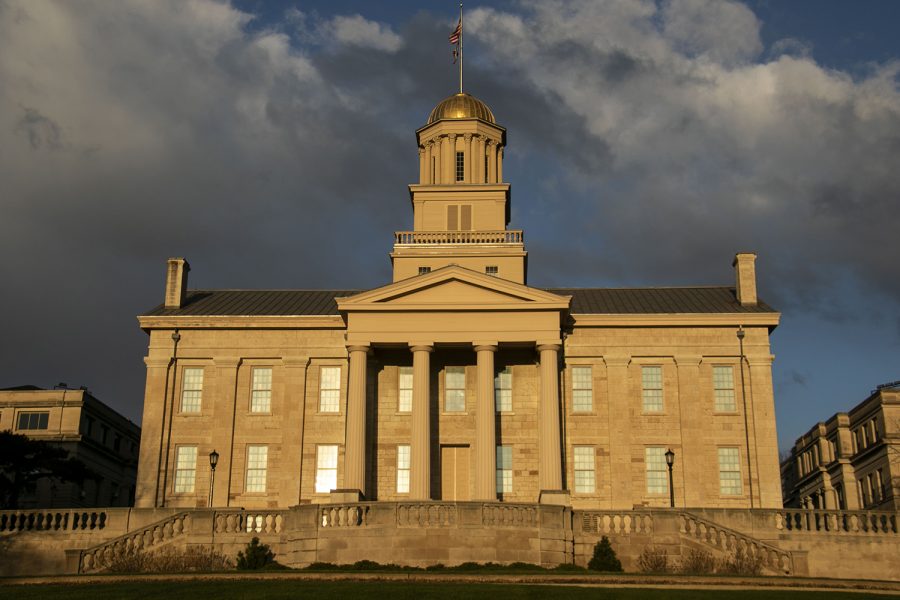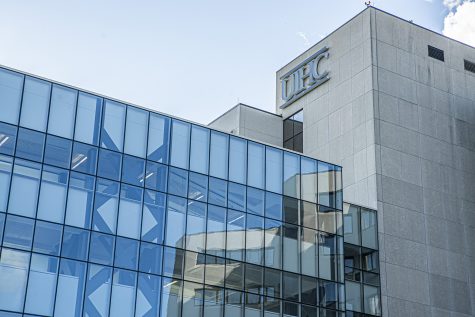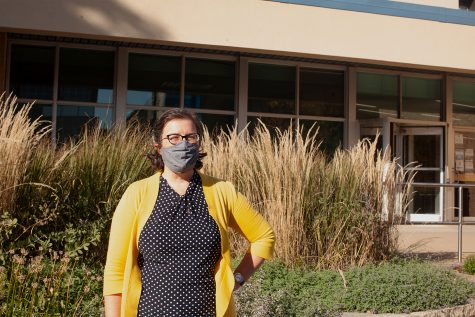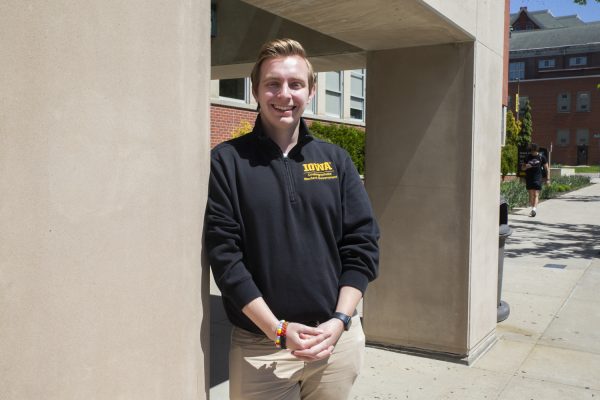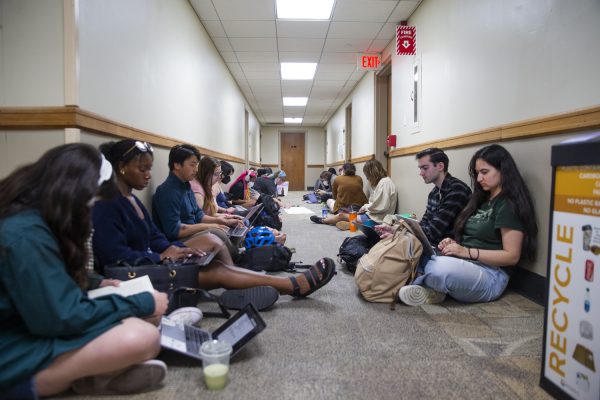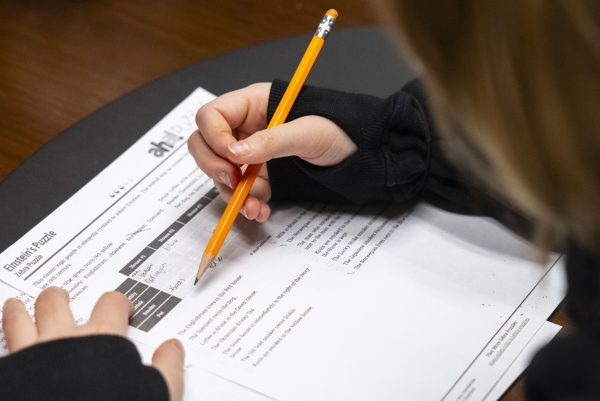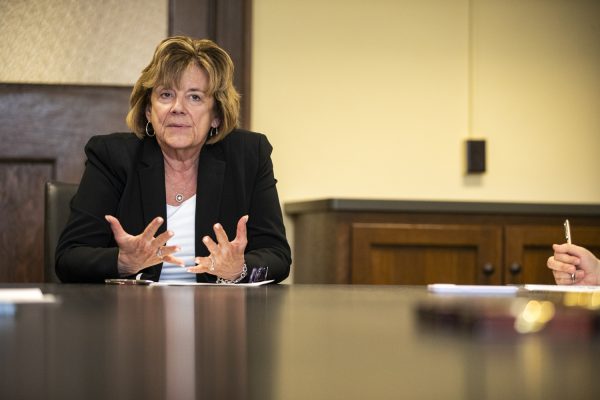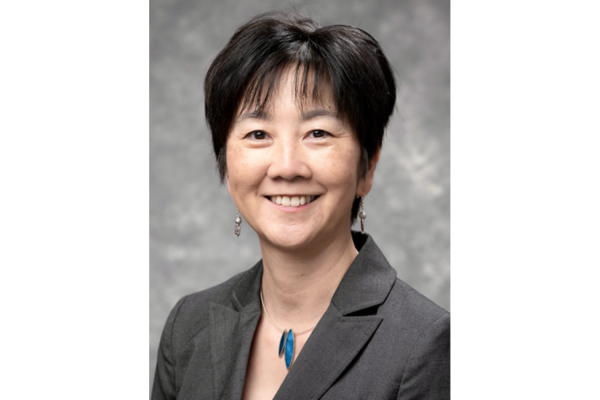University of Iowa shared governance expresses concerns with halt of diversity, equity, and inclusion training
After the university halted diversity and inclusion training in response to an executive order, students, faculty, and administrative leaders have released statements calling the halt in training ‘disappointing’.
Old Capital as seen on April 13, 2020.
October 13, 2020
University of Iowa shared governance leaders asked the UI to reinstate diversity, equity, and inclusion workplace training as soon as possible after the trainings were put on pause to evaluate compliance with a White House executive order.
The order threatened to withhold federal funding from institutions conducting trainings that promote “anti-American race and sex stereotyping and scapegoating.”
The UI’s review of diversity, equity, and inclusion training programs to make sure they are in compliance with the order is ongoing and will be completed on Oct. 19, Director of Media Relations Anne Bassett wrote in an email to The Daily Iowan,. Bassett said the review in the Carver College of Medicine was completed on Oct. 9, and all diversity-related training in that college has resumed.
“I want to reiterate UI Health Care’s unwavering commitment to fostering an environment that is culturally and intellectually diverse, equitable, inclusive, and in which everyone has the opportunity to achieve their full potential. We have more work to do towards that end, and together we will succeed,” Vice President for Medical Affairs Brooks Jackson wrote in a statement.
The University of Iowa shared governance released a statement expressing their concerns that DEI training at the UI was halted to evaluate its compliance with an executive order.
In an email sent on Oct. 2 to the President’s Cabinet and Council of Deans, Interim Associate Vice President for Diversity, Equity, and Inclusion Liz Tovar said the UI was temporarily halting diversity, equity and inclusion training provided by federal contractors and federal grantees in response to Executive Order 13950.
The order said its purpose is to “combat offensive and anti-American race and sex stereotyping and scapegoating,” and that while training employees on these subjects is beneficial, it should not be done on public tax dollars.
“The training…discussed above perpetuates racial stereotypes and division and can use subtle coercive pressure to ensure conformity of viewpoint,” the White House executive order stated.
Shared governance includes Undergraduate Student Government Leadership, Graduate and Professional Student Government Executive Team, UI Faculty Senate Officers and UI Staff Council Executive Committee.
The statement acknowledged a statement from UI President Bruce Harreld, Interim Executive Vice President and Provost Kevin Kregel and Tovar — released on Oct. 8 —condemning the proclamation.
Both statements expressed general confusion about why the proclamation was put in place. In the administrative statement, Harreld, Kregel, and Tovar said they are deeply disappointed by the intention behind and language in in the national order.
UI shared governance leaders pointed to the “chilling effect” administrators acknowledged the order could have on the university’s efforts to combat systemic racism.
“Yet, statements ultimately do little to remedy GPSG’s deep concerns that this Executive Order will significantly hinder longstanding efforts and ongoing institutional investment in addressing racial inequity and injustice,” the shared governance statement read. “Furthermore, we fundamentally disagree with the premise that teaching about racism and sexism in America is divisive and unnecessary. University of Iowa students, faculty, and staff are calling for us, as an institution, to combat the Executive Order.”
We worry the Order threatens academic freedom and could lead to censorship on campus. Academic freedom allows institutions of higher education to decide for themselves what ideas they wish to explore, as well as how they wish to explore them.”
They added that the order risks silencing the most salient and debatable issues facing students, faculty, and staff today.
In a meeting with Undergraduate Student Government members on Oct. 5, Tovar said the language in the order was troubling and the intent of the order was difficult to understand.
Despite the order halting DEI training for two weeks, Tovar said she remains hopeful for the future of the campus.
“We won’t allow the executive order to change who we are as an institution or our guiding principles,” Tovar said.
Tovar said the university decided to abide by the law because it’s irresponsible not to recognize the potential impact on the UI, such as their public funding.
In the meeting with USG and in the administrative statement, Harreld, Kregel, and Tovar said within these next two weeks, the university will strive to update its training and databases in order to improve its diversity, equity, and inclusion efforts.



